
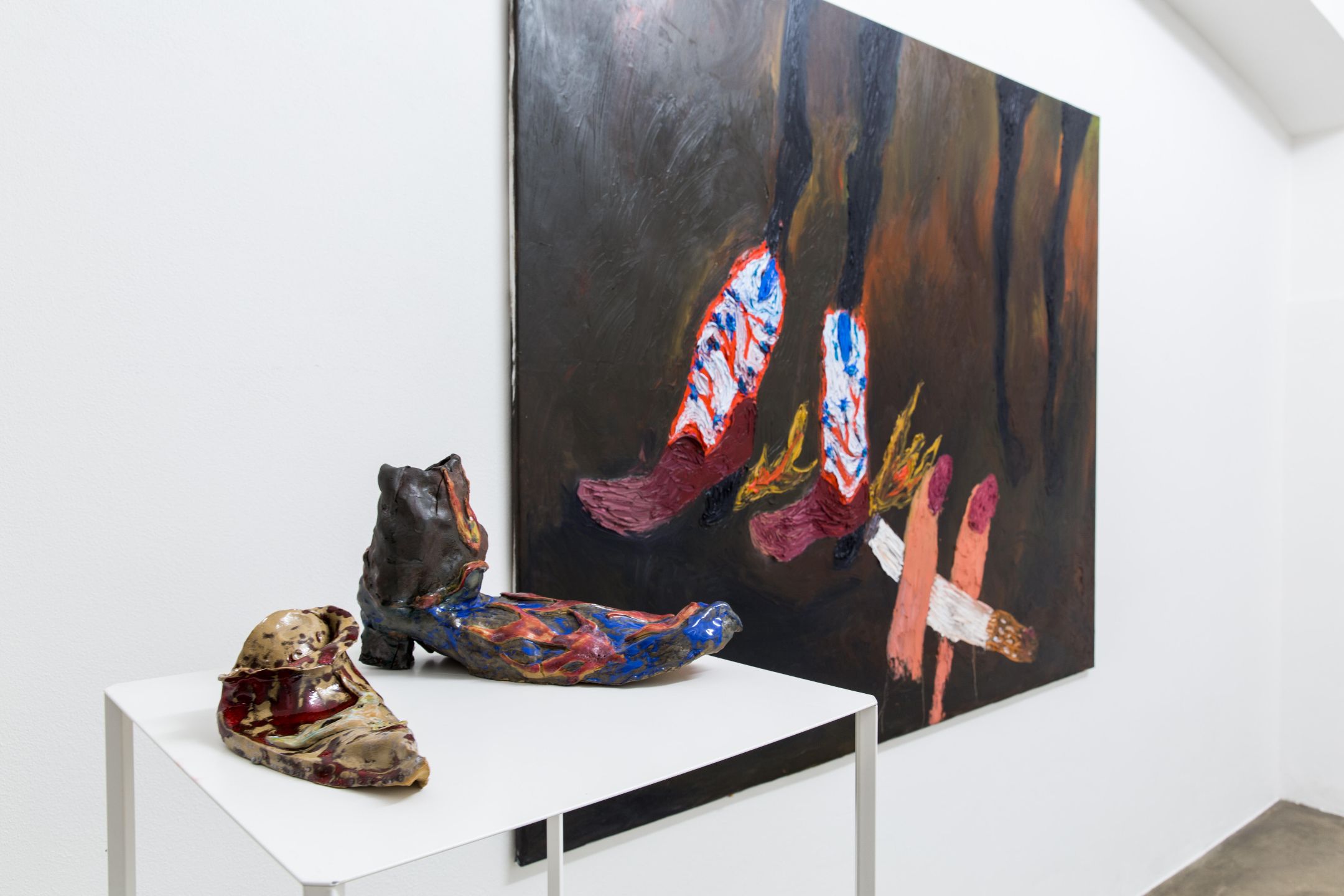
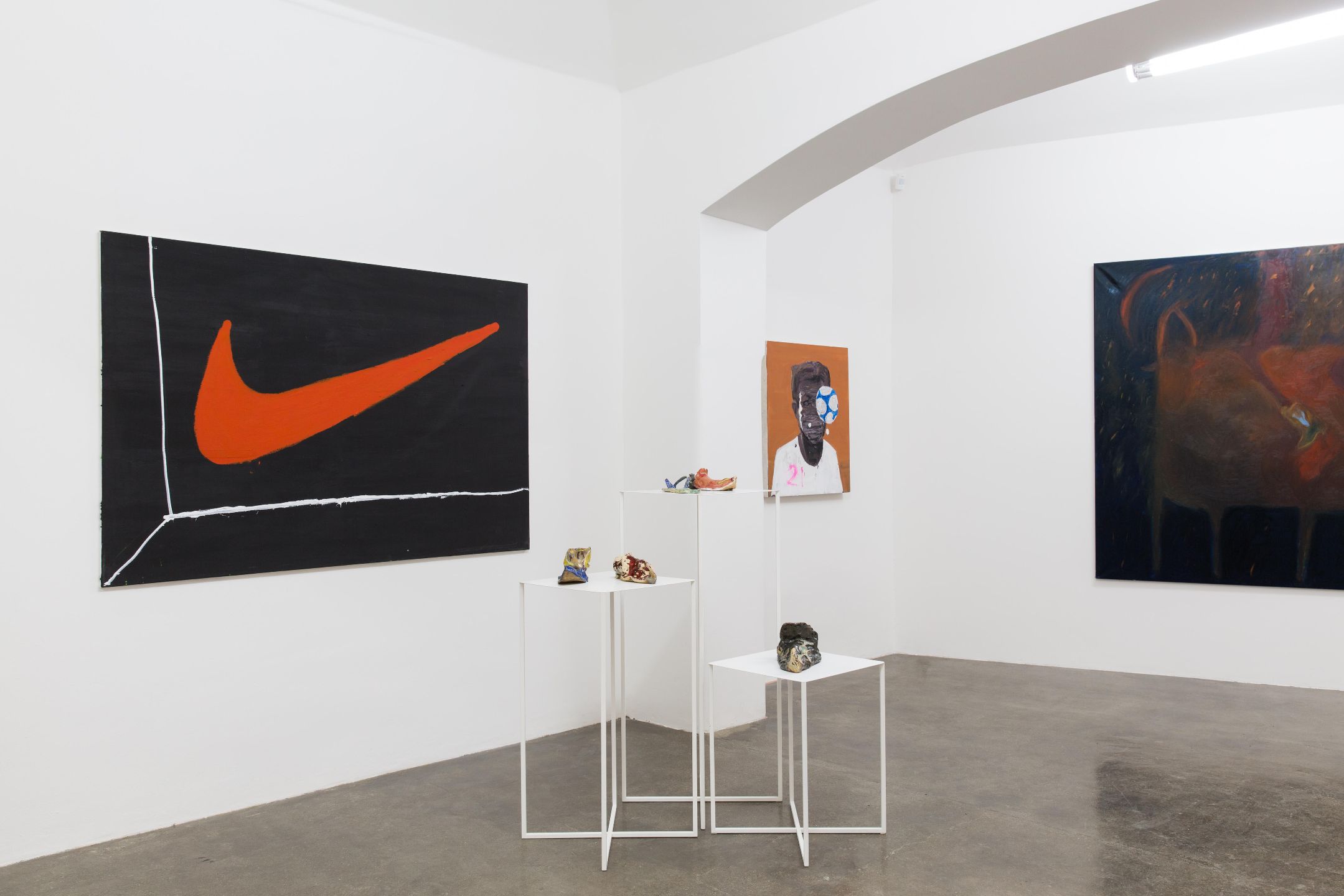
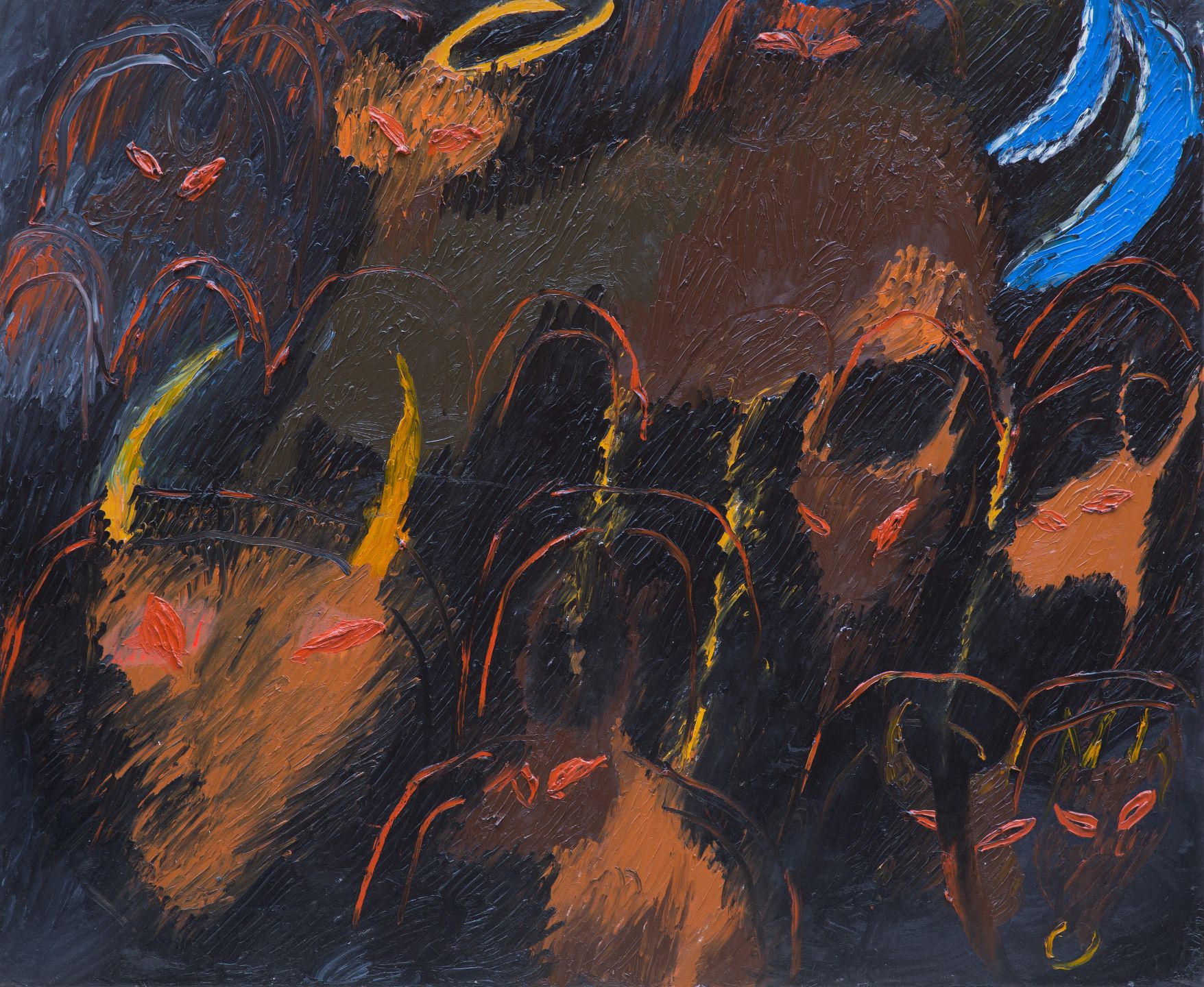
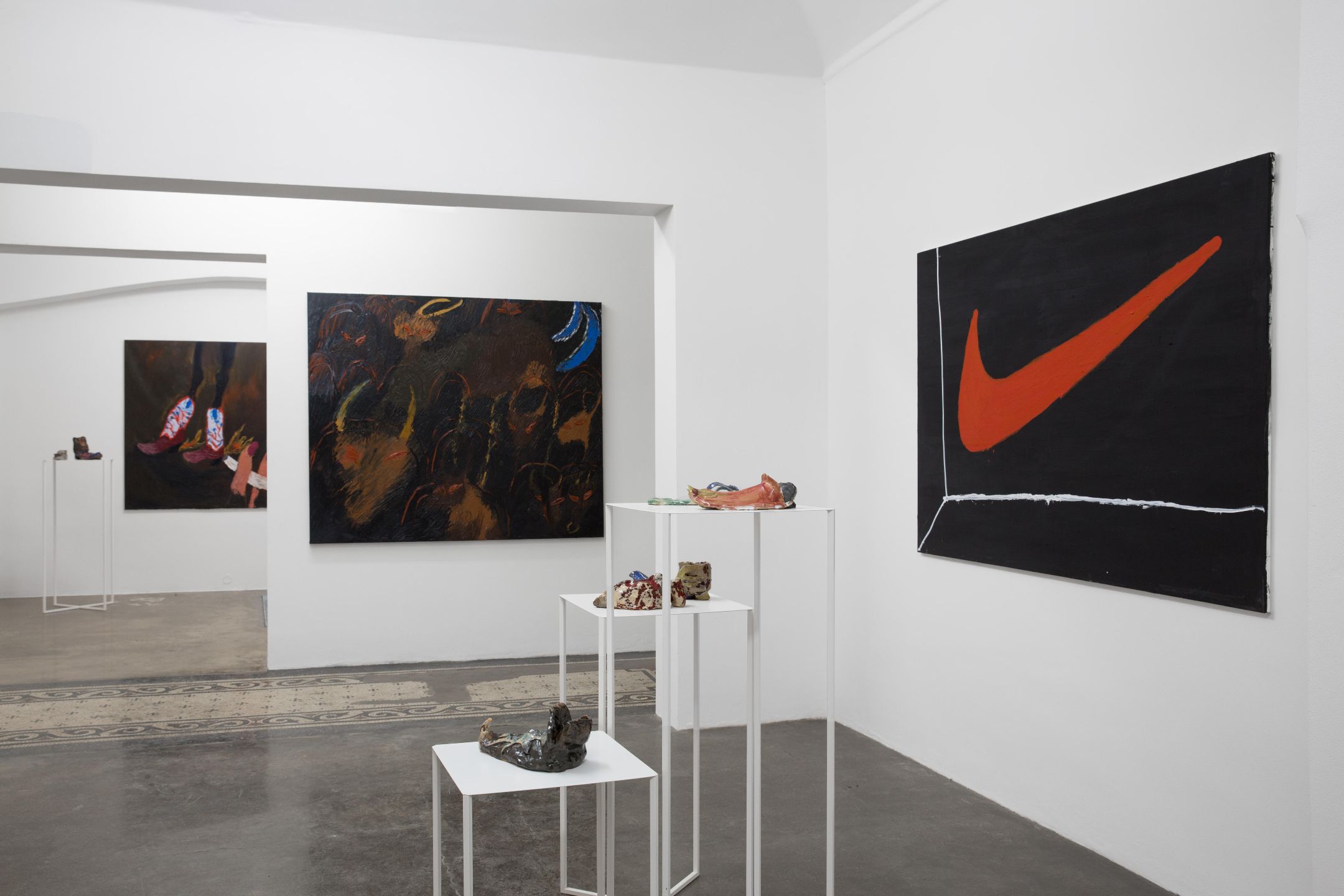
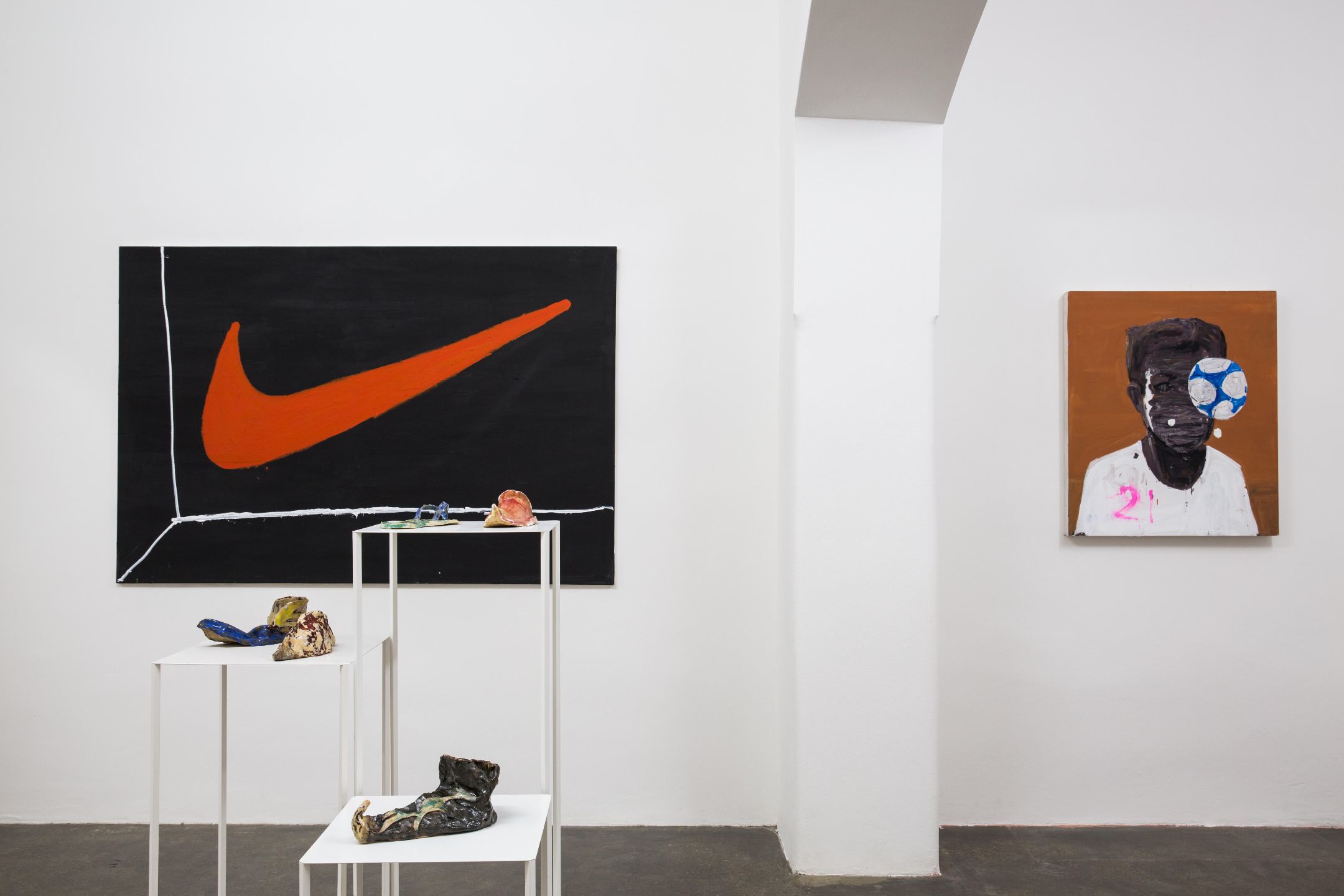
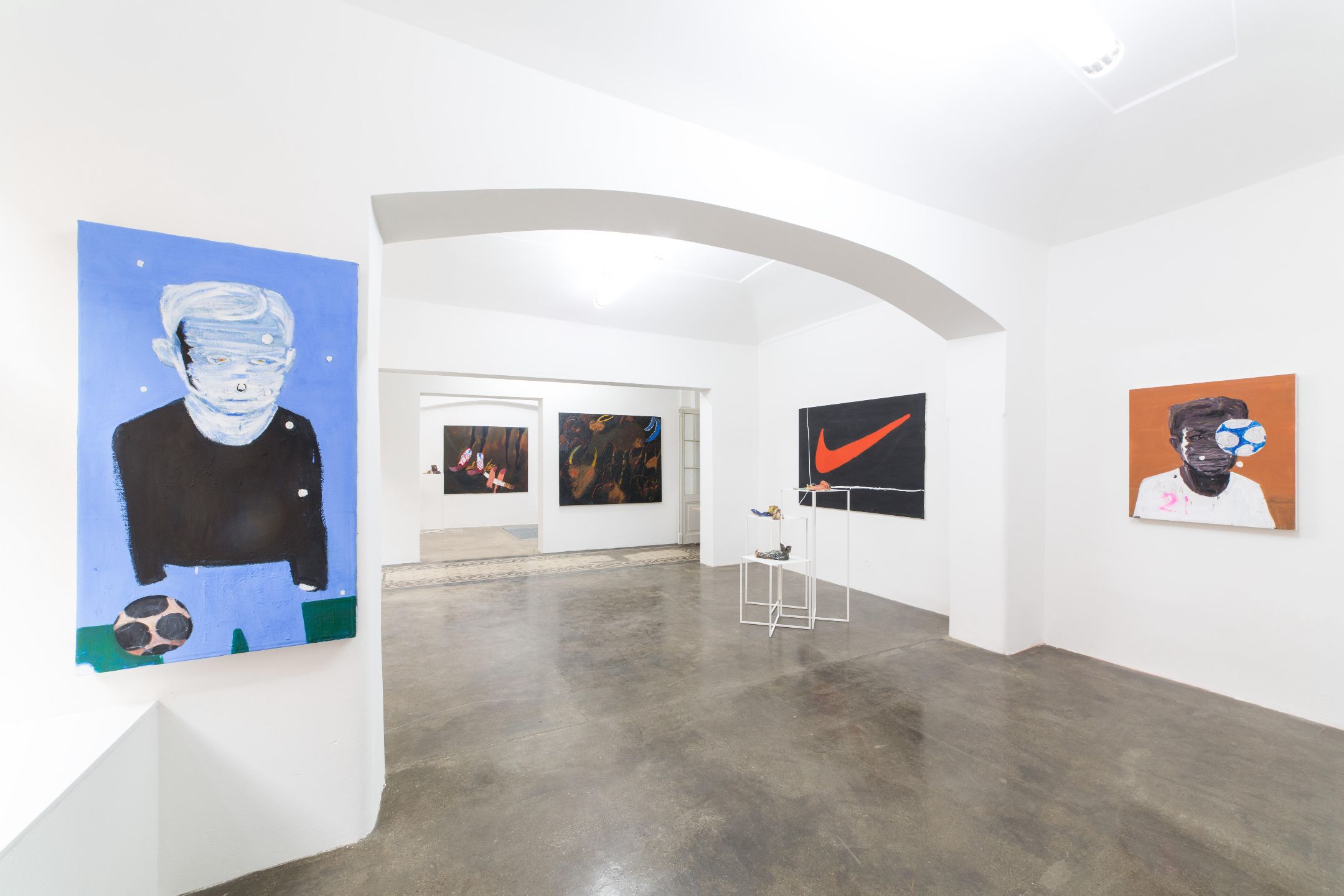
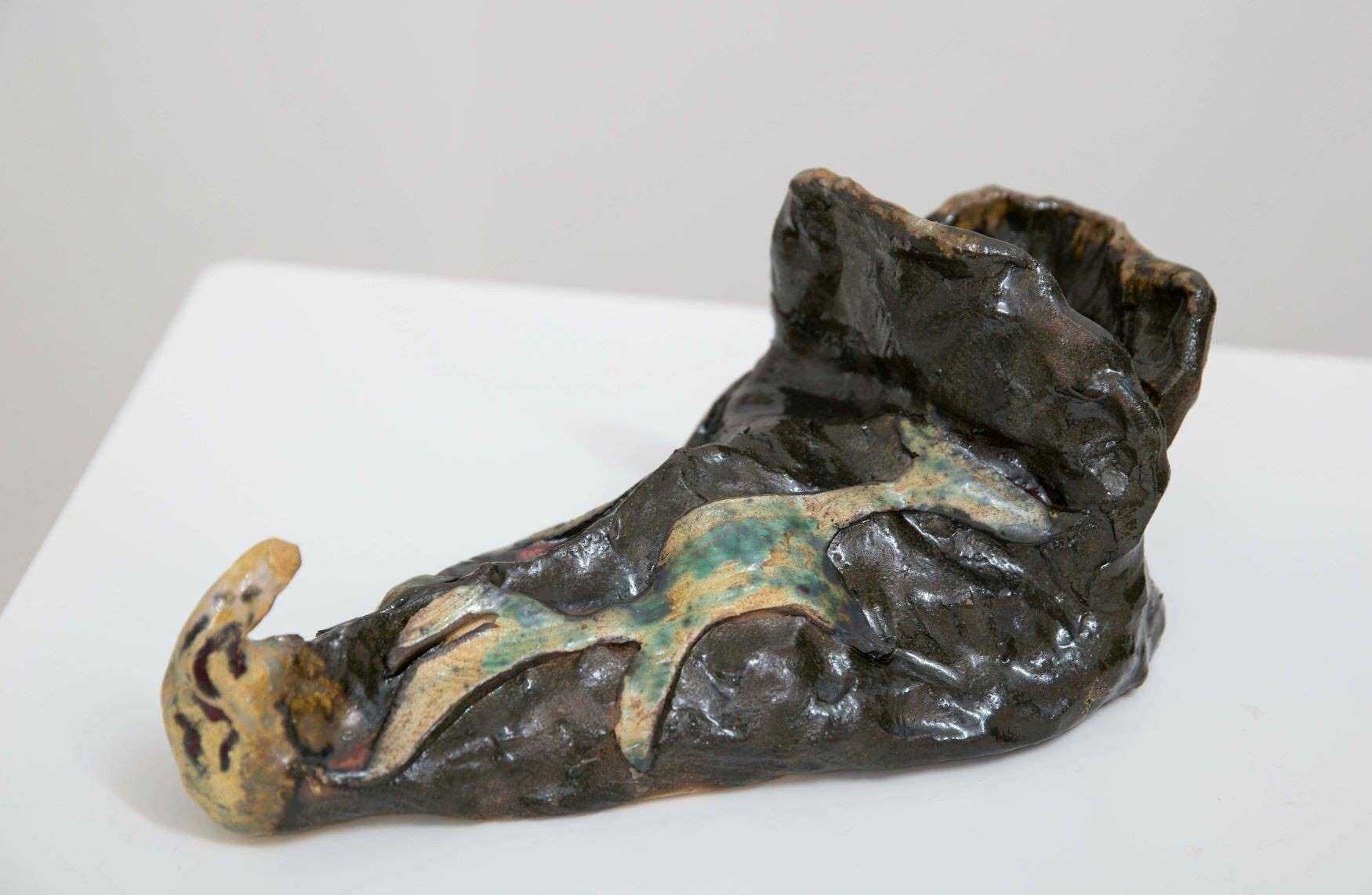
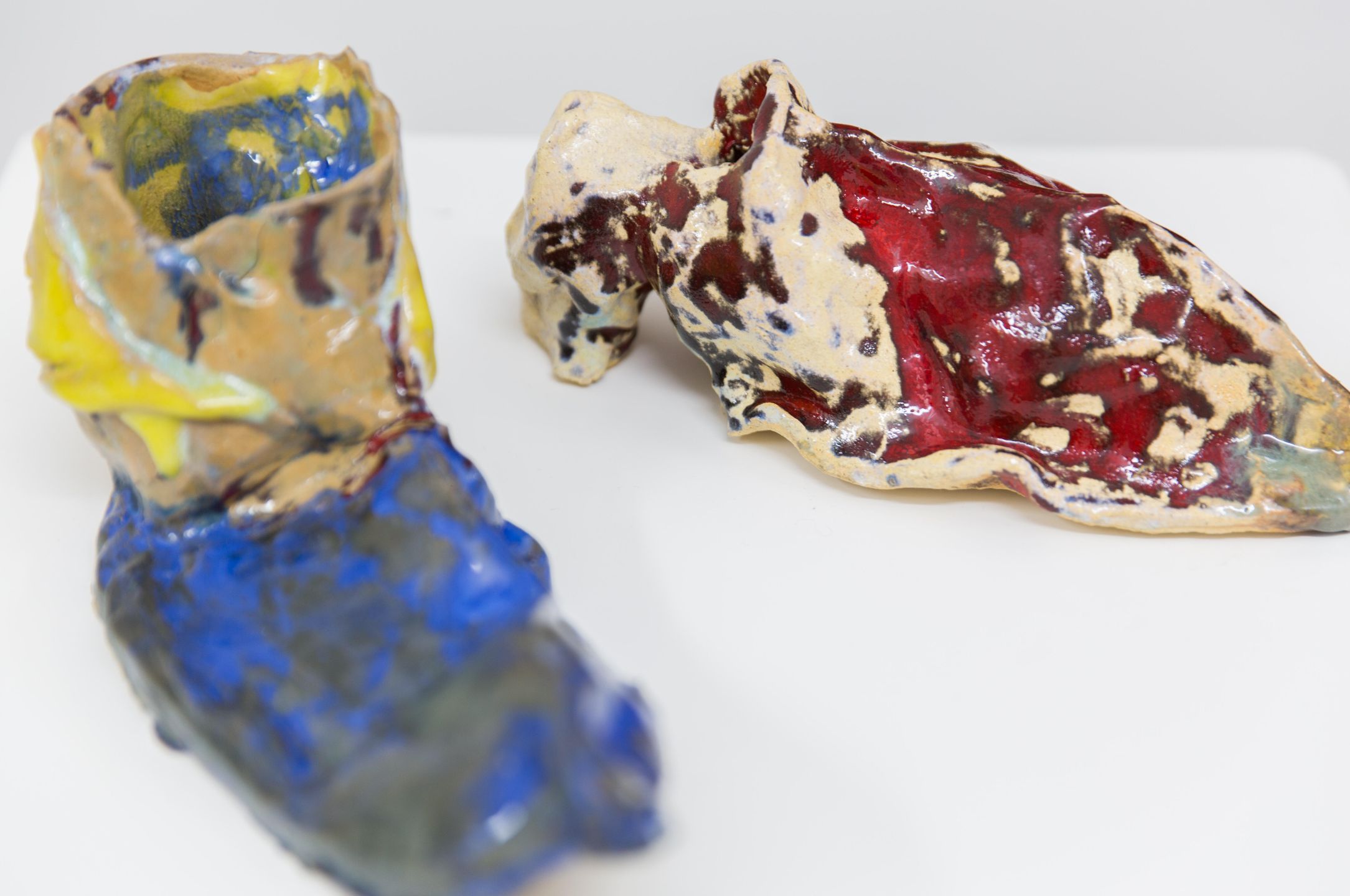
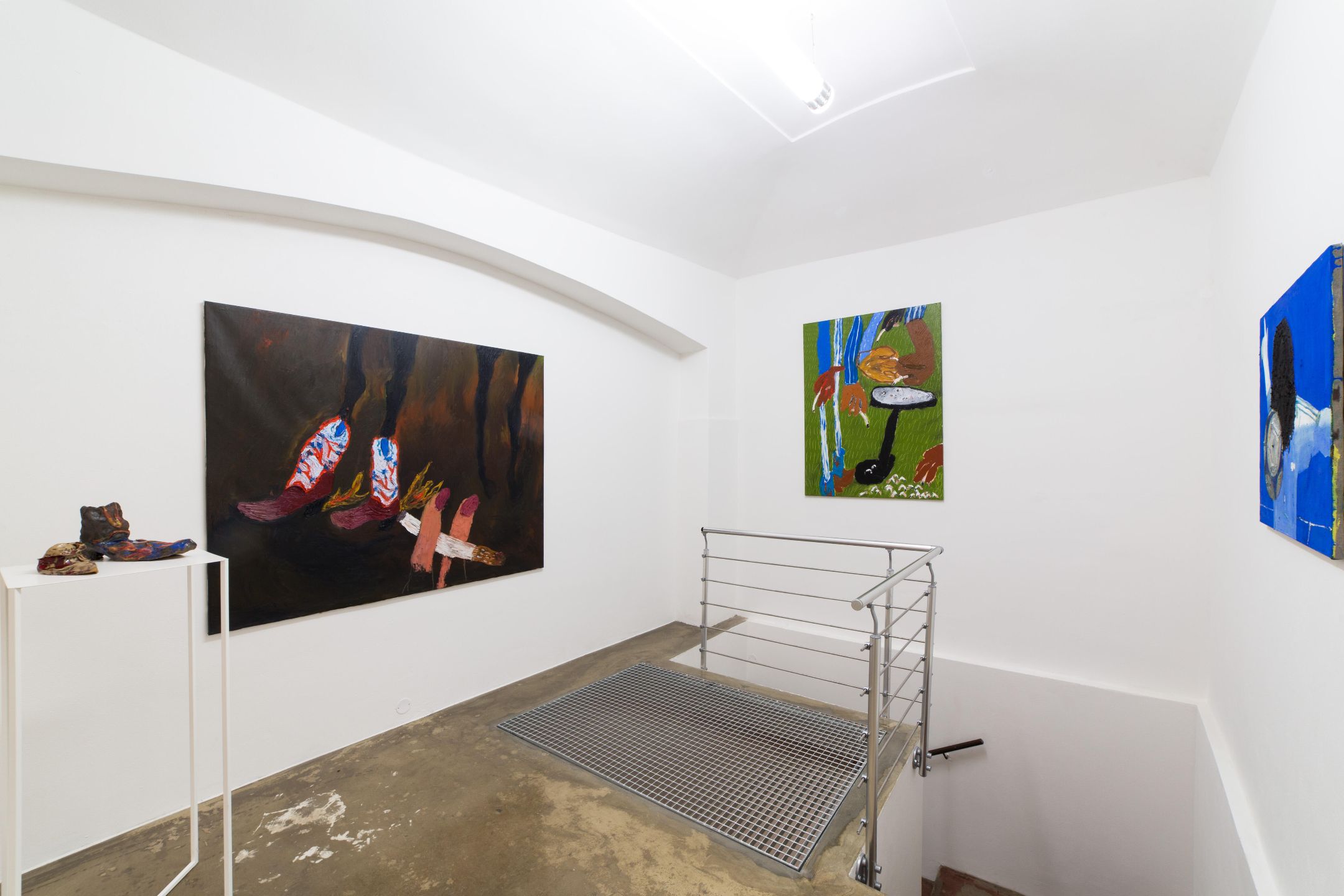
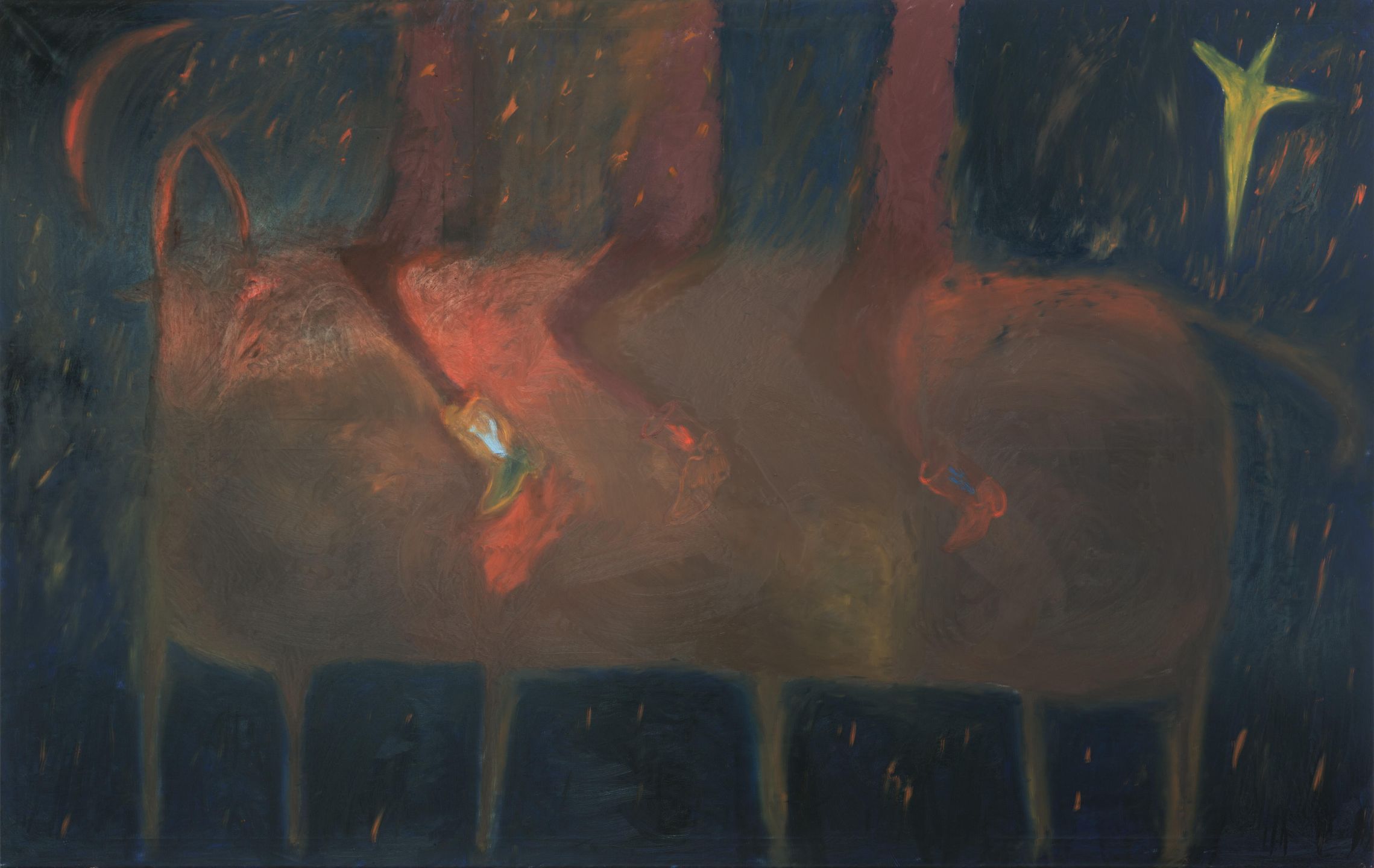
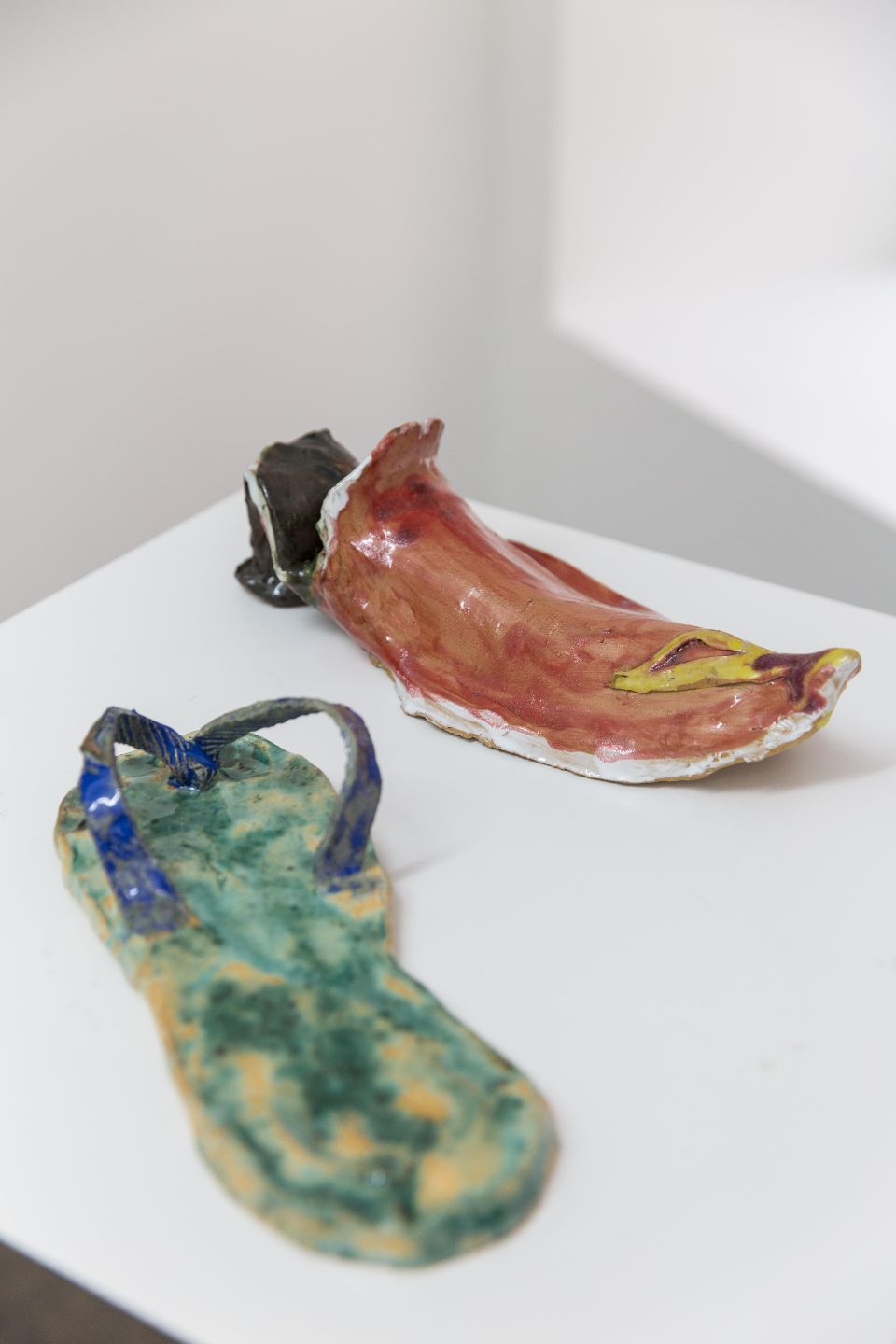
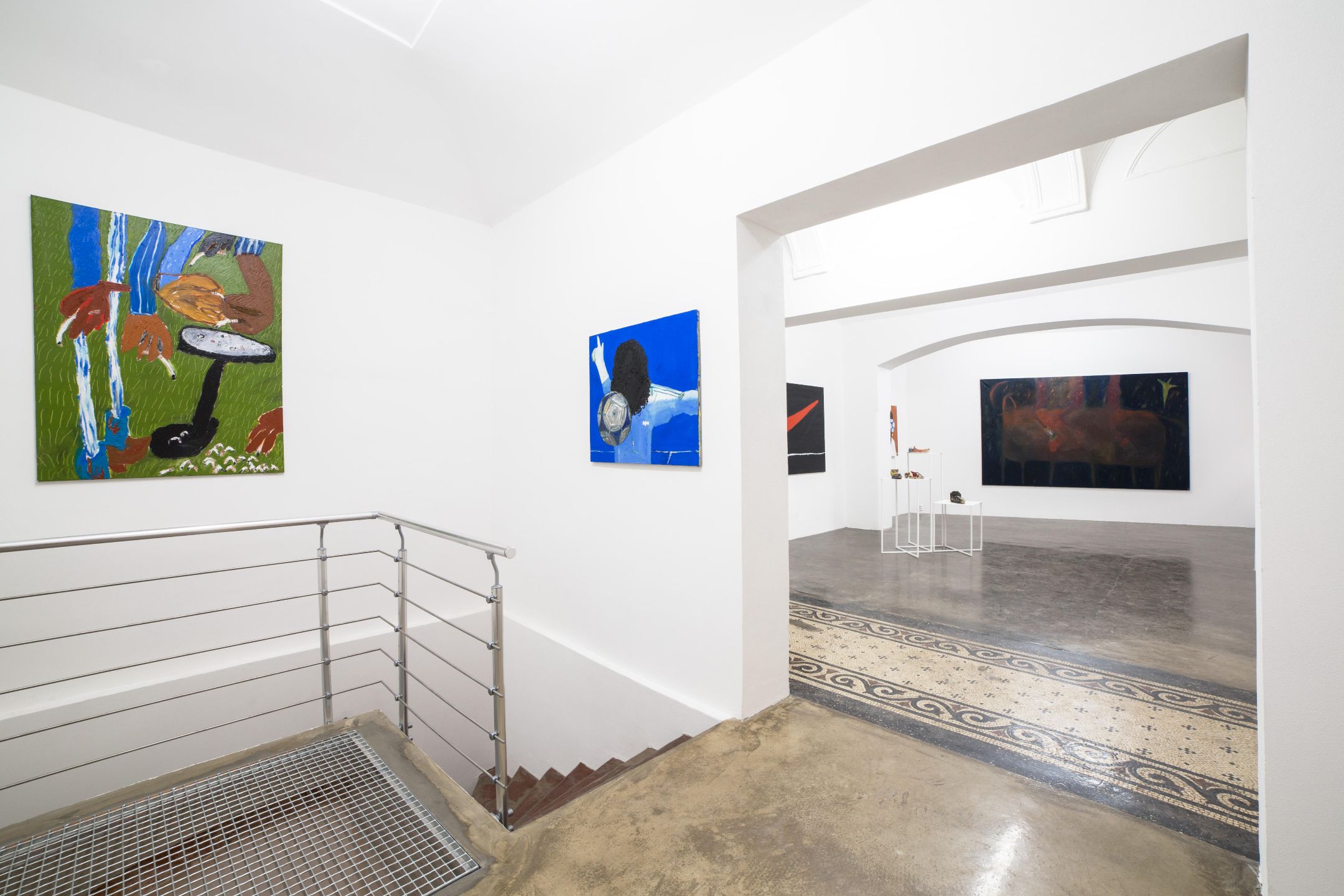
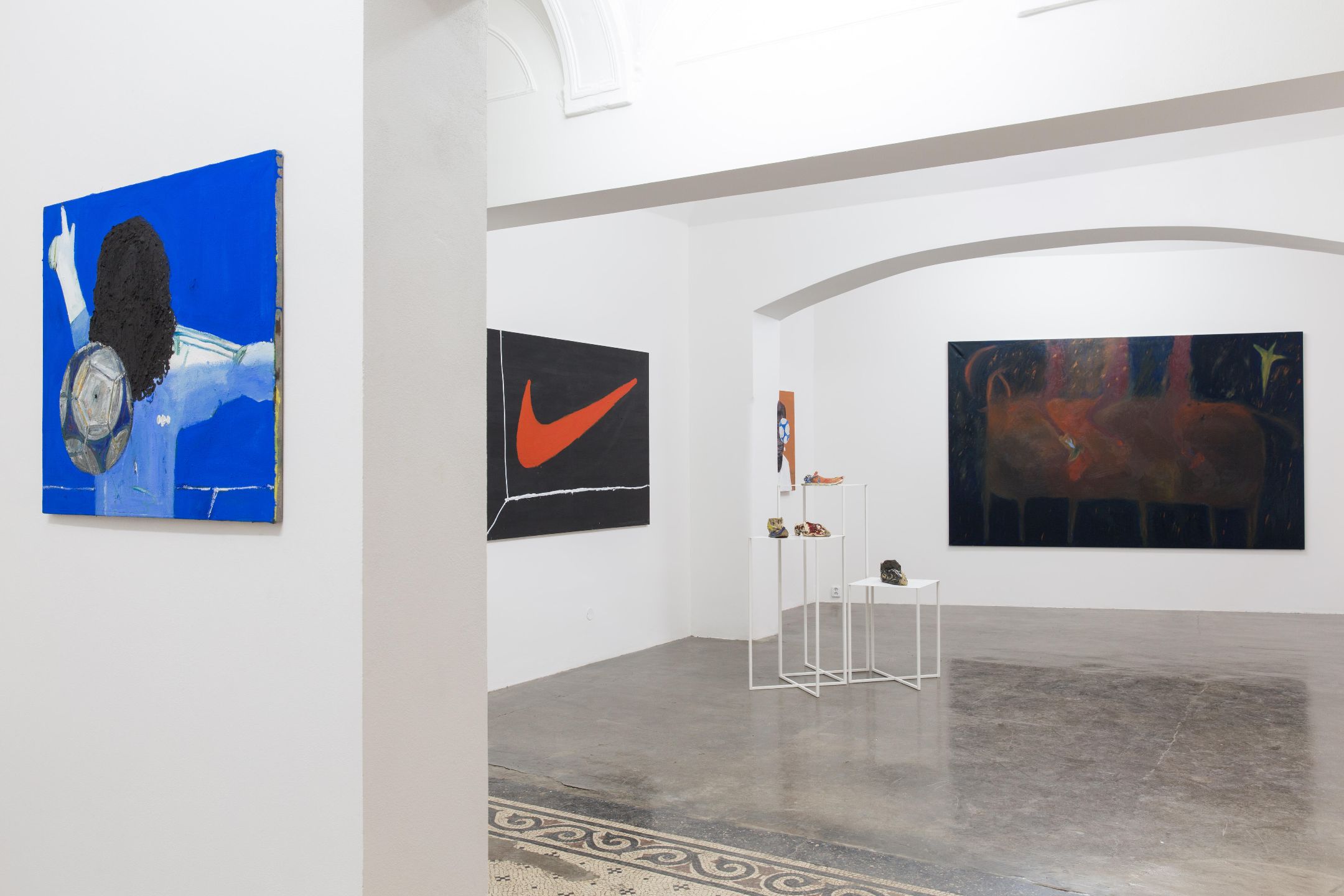
Ester Parasková, Petr Pelzmann
„I Ježíš klopýtl”
'Ludwig Wittgenstein: Anything that can be said can be said clearly, and whatever one cannot say, must stay unsaid.'
Tension aesthetics – mirroring of own ideas – creepiness of the probable and improbable – colorfulness and monochromaticity – dread of life – detection of destruction and emptiness – existential artistic uprooting – bottomlessness – loss and loneliness – reflection moderation – figuration and composition possibilities – body and face – substitutive directness – symbol denial – theme aspects – fiction – visual games - finding of new ways – rough and paste materials – indifference – awareness and familiarity – complexity – finding rules of depiction – opinion extremeness – techniques and practices – computation – apparatus of deconstruction culture – hypotheses – structures – options – plasticity forms – obscurity – polyvalence – loudness and noise – chaos constellation – obsession gesture – dissonance – rapid movements – fragment aesthetics – bravery – sleaze – ugliness aesthetics – shock by shape – attempts at complex expression – dangerous relationships – reality deformation – caricature – shocking – confidence – finding of the norm of communicability and understanding – changes – ugliness – cleansing by roughness – arrogance spontaneity – speed independence – fierceness – lightness of escape – sentiment death – asocial liveliness – paranoia – rule offence – plurality – nonsense combination – balancing over the top – searching as a process – intuition attacks – enlightenment madness – originality – individualism – society portraits – anger – aggression – tension – expectation – discontent – needs of expression – restlessness – resistance – representation systems – anti-ideology – creativity addiction – spirituality absence – perceptibility limit.'